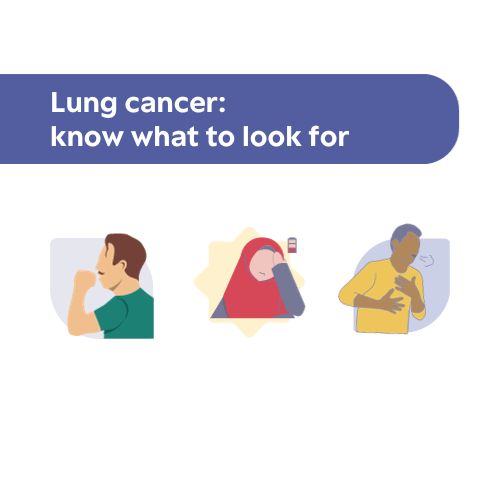Lung cancer
Signs and symptoms
Symptoms of lung cancer
- Wheezing or difficulty breathing
- A cough that doesn’t go away, or a change to an existing cough
- Repeated chest infections that won’t go away, even after antibiotics
- Coughing up blood-stained phlegm
- Pain in your chest, especially when you cough or breathe in
- Swelling around your face and neck
- Difficulty swallowing
- Feeling more tired than usual
- Loss of appetite/weight loss
All these symptoms can be caused by conditions other than cancer, but it’s important to go to the GP and get any unusual changes checked.
Can I be screened for lung cancer?
Testing for lung cancer when you have no symptoms is called screening. Currently there is no national screening programme for lung cancer in Ireland, but the Irish Cancer Society is working to change that.
If you are worried or feel you may be at risk, talk to your GP.
Continue reading about lung cancer
Talk to a Cancer Nurse

Support Line
Our Cancer Nurses offer confidential advice, support and information for anyone affected by cancer. Call or email supportline@irishcancer.ie. Video calls available. Mon-Fri: 9am-5pm
Our Daffodil Centres

Our Daffodil Centres in 13 hospitals nationwide are staffed by Cancer Nurses and trained volunteers who provide face-to-face advice, support and information for anyone affected by cancer.

